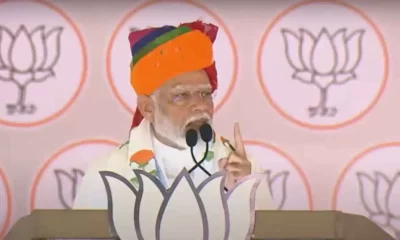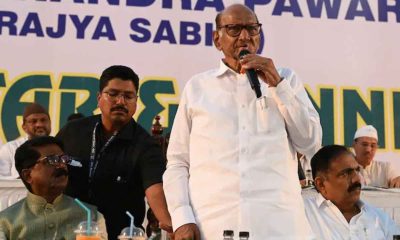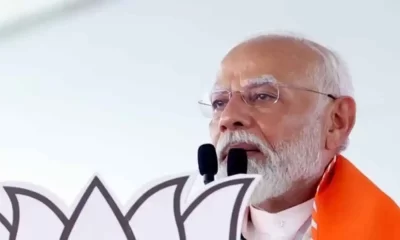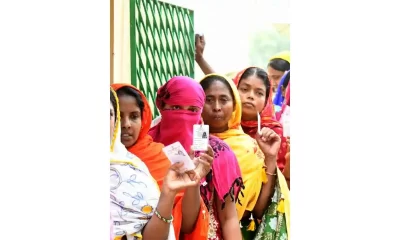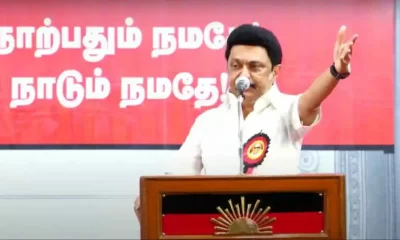Latest Politics News
China wants Modi to win elections, willing to help him meet challenge
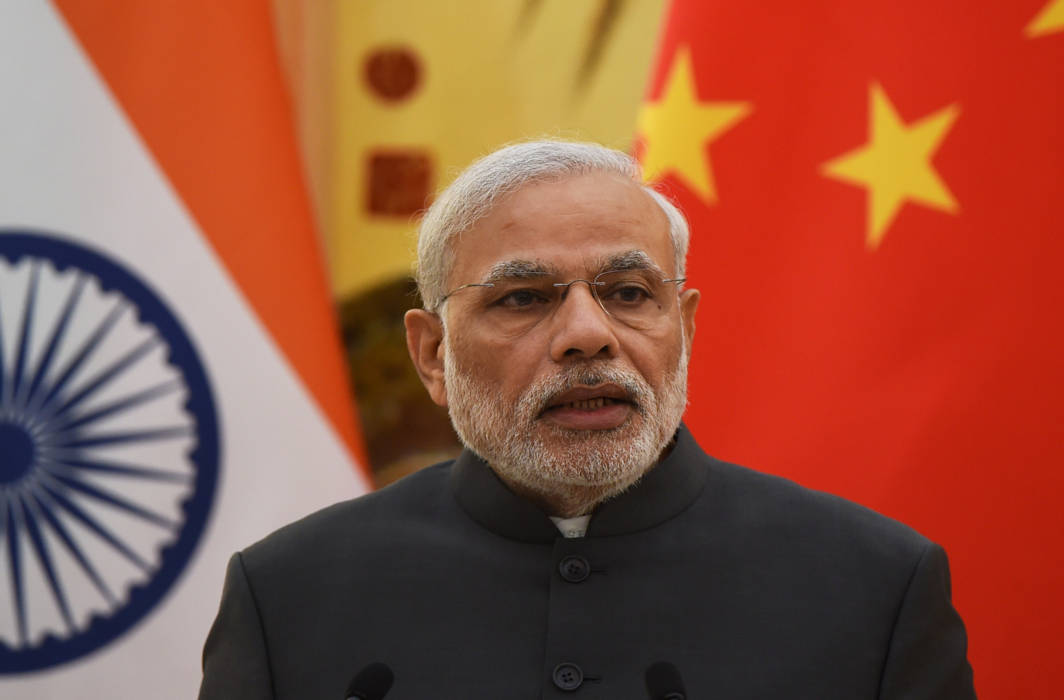
[vc_row][vc_column][vc_column_text]
For someone who loves to accuse opposition, especially Congress, for being hand-in-glove with enemy countries (Pakistan) to try and oust his government from power, Prime Minister Narendra Modi now has backing from a country he has called a bigger threat than Pakistan: China.
In the run up to the 2019 Lok Sabha election, Prime Minister Narendra Modi government’s failure on the job front, with reports saying 1.1 crore jobs were lost in 2018, is the biggest challenge he faces.
The PM’s plight has been noted abroad, most notably by China. China’s state controlled media outlet Global Times observed: “Ahead of a general election due by May, Indian Prime Minister Narendra Modi suffered a setback in an India Today poll, which showed his popularity rating had dropped to a record low of 46 percent.”
The Global Times said Modi is facing growing discontent as people question whether his reforms can create enough jobs for Indian youth, and adds: “This isn’t good news for China.”
It says, “More than one year after the military standoff in Doklam, which plunged China-India relations to their lowest point in decades, bilateral ties are on the upswing.”
It adds: “India has a weak central government and diverse population. We hope Modi can improve his public standing so that he can consolidate sufficient power to push forward reform and Sino-India economic cooperation as bilateral relations warm up.”
It says: “A country usually has different priorities in its policy design at different stages of economic development. Earlier this month, an estimated 200 million people went on a two-day strike across India, media reports said, bringing the country to a standstill.”
“India is facing an increasing tough situation in creating jobs and improving wages for its workers. In other words, more importance will be attached to job creation in policy design,” says the Global Times report.
“The Modi administration needs good news in terms of job growth ahead of the upcoming general election,” the report says.
But how can Modi improve his image, the report asks, and suggests Chinese investment as the solution.
China’s investment in India is mainly focused on labor-intensive sectors such as building smartphone plants, the report observes and says China is witnessing a boom in outbound investment as its labor cost advantage shrinks.
“Encouraging Chinese companies to invest in India’s labor-intensive industries will help achieve this goal (of achieving job growth) and rapid growth in Chinese investment will help consolidate Modi’s political status before the general election, says the Global Times report.[/vc_column_text][/vc_column][/vc_row]
2024 Lok Sabha Elections
Mallikarjun Kharge vows to continue politics till his last breath to defeat BJP
The 81-year-old Congress leader was speaking at a election rally in Afzalpur and said that if the people did not vote for the Congress candidate, he would think that he did not have any place in Kalaburagi anymore.

Congress President M Mallikarjun Kharge on Wednesday appealed to the people of Kalaburagi to at least attend his funeral if they thought he worked for them even though they do not wish to vote for Congress in the ongoing Lok Sabha elections.
The 81-year-old Congress leader was speaking at a election rally in Afzalpur and said that if the people did not vote for the Congress candidate, he would think that he did not have any place in Kalaburagi anymore. The Congress President sought an emotional chord with the people of his home district of Kalaburagi, Karnataka
The grand old party has fielded Kharge’s son-in-law Radhakrishna Doddamani from Kalaburagi, against BJP’s sitting MP Umesh Jadhav. Kharge had won the Lok Sabha elections from Kalaburagi in 2009 and 2014, but lost in 2019. He appealed to the voters to vote for Congress but at least come to his funeral if they thought that he had done some work in Kalaburagi. Kharge added that he would continue in politics till his last breath to defeat the BJP and RSS ideology.
The Congress leader said he is born for politics and whether or not he contests the election, he will continue to strive till his last breath to save the Constitution and democracy of the country. He asserted that he will not retire from politics. Kharge said that retirement happens from a position but one should not retire from his/her principles. He said he is born to defeat the ideology of the BJP and RSS and not to surrender before them.
He advised Karnataka Chief Minister Siddaramaiah, who shared the stage with him, to follow his principles. He said he had told Siddaramaiah many times that he may retire as CM or MLA, but he cannot retire from politics till he defeats the ideology of the BJP and RSS.
2024 Lok Sabha Elections
Nitin Gadkari says he’s better now after collapsing at election rally in Maharashtra’s Yavatmal
A disturbing video of the incident – which was unfortunately streamed live on X (formerly Twitter), including by his own account – showed Nitin Gadkari being carried away by those on stage, many of whom rushed to form a shield around the BJP leader to give him, and those treating him, some privacy.
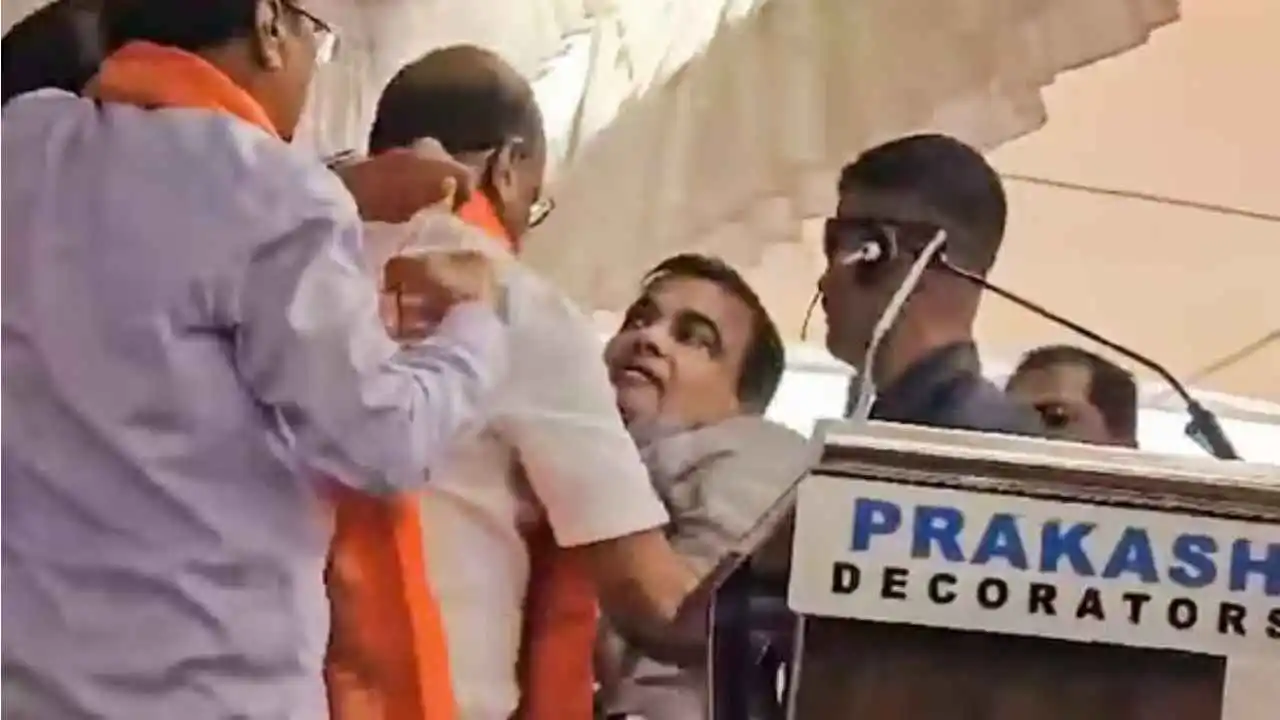
Union Road Transport and Highways Minister Nitin Gadkari collapsed while speaking at an election rally in Maharashtra’s Yavatmal on Wednesday afternoon. Fortunately, the senior Bharatiya Janata Party leader received prompt treatment and was able, after a brief pause, to get back up on stage and continue his speech.
A disturbing video of the incident – which was unfortunately streamed live on X (formerly Twitter), including by his own account – showed Nitin Gadkari being carried away by those on stage, many of whom rushed to form a shield around the BJP leader to give him, and those treating him, some privacy.
Nitin Gadkari took to X and informed that he felt uncomfortable due to the heat during the rally in Pusad, Maharashtra. But now he is completely healthy and is leaving for Varud to attend the next meeting. He thanked his supporters and well wishers for their love and good wishes.
Gadkari, who fought the elections in the first phase of voting as BJP’s candidate from Nagpur Lok Sabha seat, was campaigning for Eknath Shinde-led Shiv Sena leader Rajashree Patil in Yavatmal’s Pusad. Addressing the rally, the union minister said, he was confident that the people of Yavatmal district, which has a constant tendency towards development, will give victory to the BJP-Maha alliance, which believes in all-round development.
Gadkari posted on X that as the nation moves towards a developed India, under the leadership of Prime Minister Narendra Modi, significant work has been done in the last 10 years in the areas of roads and highways as well as health, education and other sectors across the country. He said many schemes of the central government were successfully extended to the rural areas. Due to this, along with the city, the people of the rural areas are also able to benefit from many important facilities.
The Yavatmal constituency along with Akola, Buldhana, Amravati, Hingoli, Wardha, Parbhani and Nanded in Maharashtra are scheduled to vote in the second phase of the Lok Sabha election on April 26.
2024 Lok Sabha Elections
PM Narendra Modi slams Congress over Sam Pitroda’s inheritance tax remarks, accuses Congress of intending to impose higher taxes
PM Modi was speaking at a public meeting in Chhattisgarh’s Surguja, where he alleged that the Congress wants to fill its own coffers by imposing ever higher taxes and not allowing people to pass on their hard-earned wealth to their children.
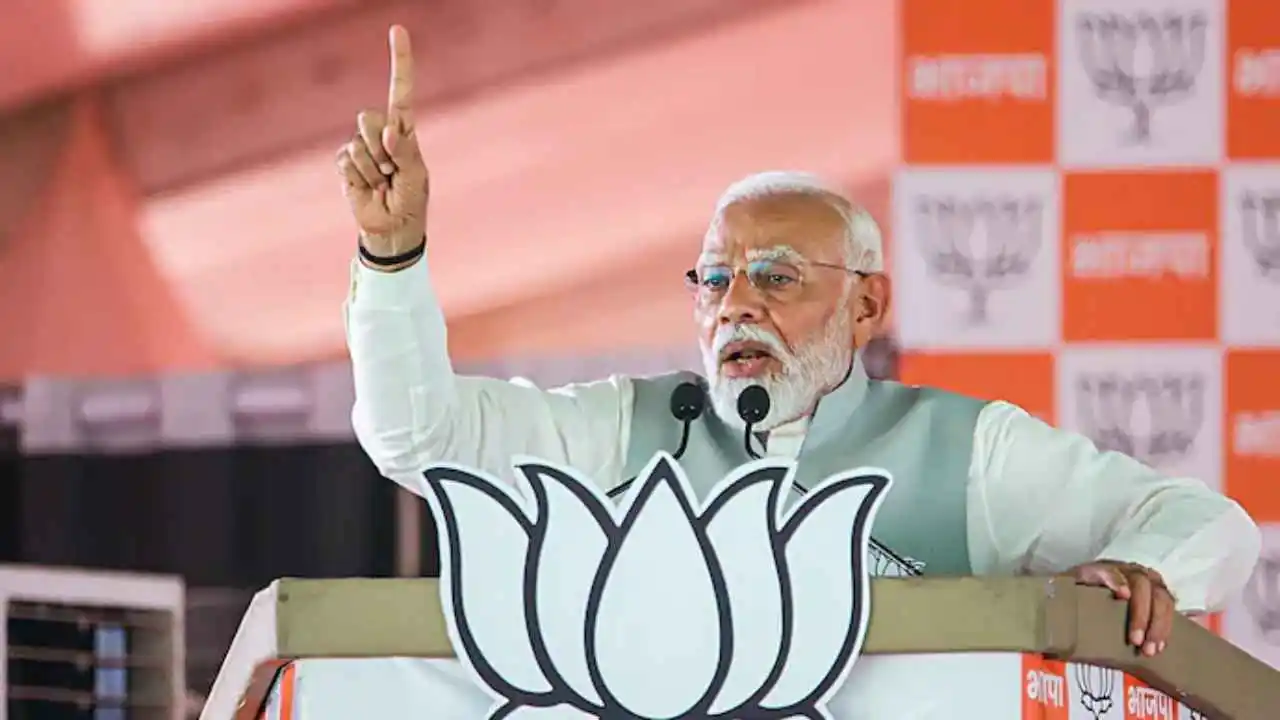
Prime Minister Narendra Modi on Wednesday launched a scathing attack on Congress after Sam Pitroda advocated for a US-style inheritance tax amid the ongoing debate over wealth redistribution. The comments have further fuelled an already-raging controversy over Rahul Gandhi’s promise to conduct a wealth survey if the Congress won the Lok Sabha election.
PM Modi was speaking at a public meeting in Chhattisgarh’s Surguja, where he alleged that the Congress wants to fill its own coffers by imposing ever higher taxes and not allowing people to pass on their hard-earned wealth to their children.
The Prime minister said the advisor (Sam Pitroda) of the prince and the royal family had said some time ago that more taxes should be imposed on the middle class. He said the Congress party says that it will impose an inheritance tax, and it will also impose tax on the inheritance received from parents. PM Modi added the children will not get the wealth that their parents accumulate through their hard work, rather the Congress party will snatch it away from them.
PM Modi said Pitroda’s remarks have exposed the dangerous intentions of the Congress. He took a veiled jibe at the Congress and said the party has only one mantra – to loot people zindagi ke sath bhi, zindagi ke baad bhi (in life and even after death).
The prime minister did not take any names and targeted the Gandhi family and said, those people who considered the entire Congress party as their ancestral property and handed it over to their children, now do not want Indians to pass on their property to their younger generations.
Indian Overseas Congress chairman Sam Pitroda while talking to the media backed his party’s stand on redistribution of wealth and called for a policy for the same while citing the concept of inheritance tax prevailing in some American states.
-

 Cricket news22 hours ago
Cricket news22 hours agoIPL 2024: Marcus Stoinis hits first IPL century as Lucknow Super Giants beat Chennai Super Kings by 6 wickets
-
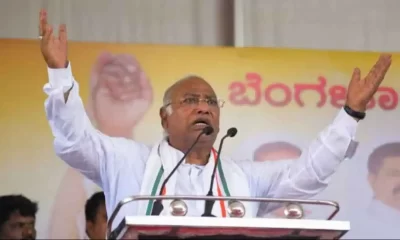
 2024 Lok Sabha Elections14 hours ago
2024 Lok Sabha Elections14 hours agoMallikarjun Kharge vows to continue politics till his last breath to defeat BJP
-
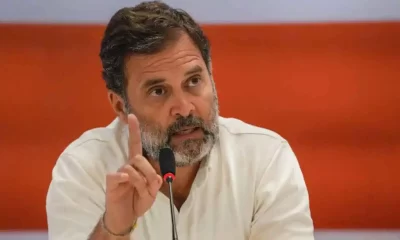
 2024 Lok Sabha Elections20 hours ago
2024 Lok Sabha Elections20 hours agoRahul Gandhi clarifies on wealth survey remark, says aim is to identify injustice
-
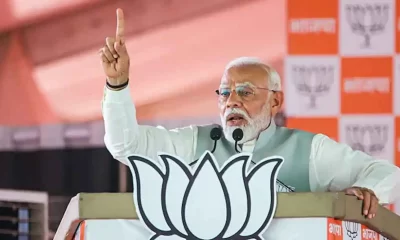
 2024 Lok Sabha Elections17 hours ago
2024 Lok Sabha Elections17 hours agoPM Narendra Modi slams Congress over Sam Pitroda’s inheritance tax remarks, accuses Congress of intending to impose higher taxes
-
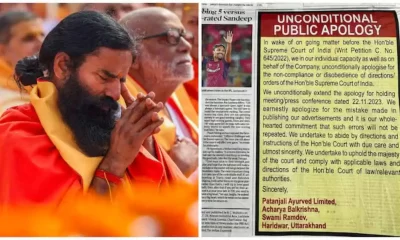
 India News20 hours ago
India News20 hours agoRamdev, Balkrishna publish bigger apology in newspapers after Supreme Court’s rap
-

 2024 Lok Sabha Elections14 hours ago
2024 Lok Sabha Elections14 hours agoNitin Gadkari says he’s better now after collapsing at election rally in Maharashtra’s Yavatmal
-

 Trending18 hours ago
Trending18 hours agoA waiter’s life: Social media users go emotional on watching viral video
-

 Entertainment16 hours ago
Entertainment16 hours agoMadhuri Dixit, Karisma Kapoor recreate Dil To Pagal Hai dance battle on Dance Deewane

